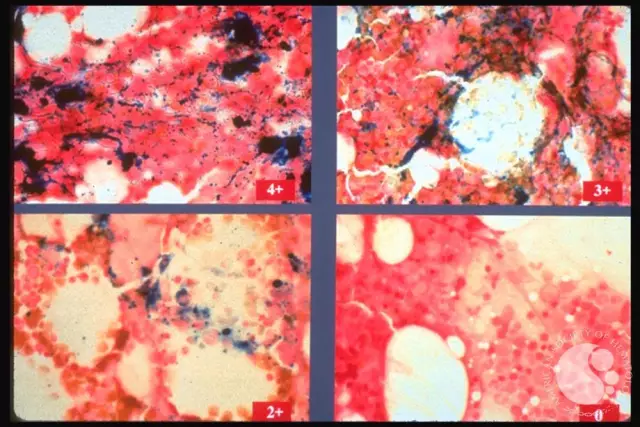- Author Curtis Blomfield blomfield@medicinehelpful.com.
- Public 2023-12-16 20:44.
- Last modified 2025-01-23 17:01.
In hot summer weather, many people notice how large swarms of bright large flies fly around instead of mosquitoes or midges. These insects are horseflies that can travel tens of kilometers at a fairly high speed. Buzzing loudly and flying around, they often bite very painfully. In this case, there is a feeling that the body was burned for a second by something hot and sharp. The peak of the highest activity of these insects occurs in June and July.
Basically, horseflies “hunt” their victims near water bodies or in large open clearings. They are rarely found in the city, but they fly in huge colonies in small villages, along the shores of lakes, as well as in sparsely populated villages. Horsefly bites are much more painful than mosquito bites, so a person, and especially a small child, must feel it. A small pimple immediately appears on the skin, which may not immediately, but certainly causes severe itching and burning. Sometimes horsefly bites cause a few drops of blood from the wound.

Like mosquitoes or midges, these flying "stickers" do not have poisonous glands found in bees or bumblebees, so they only damagehuman or animal skin.
The bite of a horsefly (whose photo indicates that it is a fairly large insect) is dangerous only because the anticoagulant injected by this insect prevents blood clotting. As a result, the body immediately reacts with itching and irritation. A person subconsciously begins to rub or scratch this place and can bring dirt or infection. As a result, suppuration may begin, sometimes developing into malaise and fever.

However, there is another consequence that horsefly bites can leave - an allergic reaction. Therefore, even for those who do not suspect that they have such a disease, it is recommended for safety to take a pill of some kind of antihistamine drug, such as suprastin.
Gidfly bites are usually palpable but not dangerous. However, to prevent itching or swelling, it is best to rub this place with dry soda powder, and then treat the wound with any antiseptic, such as brilliant green.
Alcohol solution will slightly dry the wound, but if the swelling does not go away, you can lubricate it with propolis tincture, sold in any pharmacy. Sometimes the most ordinary ice or sour cream compress helps.
Doctors recommend immediately after a bite to wash the affected area with soapy water and only then make lotions with a bandage moistened with vodka or soda solution. It is advisable to change the gauze every fifteen minutes.
However, it is much easier to deal not with the consequences that horsefly bites leave, but with their root causes. That's why,while relaxing in nature by a lake or in a forest, one should not forget about the danger of a raid by these insects, which are just waiting to attack.

A smoke fire works great, as well as some kind of cream that can scare away horseflies and mosquitoes for a while.
These annoying parasites have excellent eyesight, so they fly most often on colorful and dark clothes, sometimes completely ignoring light colors. That is why, when going to nature, it is more correct to wear white or beige clothes with long sleeves, try not to walk near the water in the sun, but wait out the heat in a shaded place, since the activity of horseflies increases in bright light.






